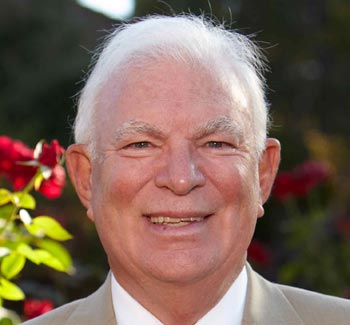
Photo courtesy of Chico State.
While increases to state funding show promise of a brighter financial future for the California State University system, the changes that come with it may not be welcome by educators.
At a university budget meeting on Feb. 21, Chico State President Paul Zingg outlined how the future budgeting process will affect the university.
The CSU budget proposal presented by Governor Edmund Brown in January included an additional $142 million for the university system.
This increase is part of a pledge from the governor to increase funding for the CSU by about four percent each year for four years, Zingg said.
Previously, the system lost about $1 billion in state funding over the past 10 years, he said.
These increases are contingent upon showing progress in accessibility, affordability and degree completion among other requirements posed by the governor.
No strict goals have been set regarding how universities in the system can meet these requirements, Zingg said.
“He didn’t put a number on any of those except a very clear expectation that we will be able to show progress in all of those items,” he said.
State funding for the CSU will be finalized and adopted in June.
How successful universities are in meeting these goals will be the basis for how funding is allocated in the future.
“We are moving slowly but surely from an enrollment-driven budget world to a performance-driven budget world,” Zingg said.
As part of this shift, the CSU will start biennially reporting the total cost of educational programs starting in October.
While the model posed by the governor is different from that utilized by K-12 schools, trying to attach numbers to the quality of an education has not worked well under past programs such as No Child Left Behind, said Paula Sylvester, chair of the Academic Senate.
“It’s like walking on a minefield,” said Kathleen Kaiser, sociology professor and representative to the statewide Academic Senate.
Once one program is identified as being more or less expensive that another, it opens the way for interdepartmental conflict, Kaiser said. It may also restrict the university from providing students with a well-rounded educational experience.
“It’s not a very healthy framework,” she said.
Also mentioned at the meeting:
- There will not be an increase in tuition fees for the coming year, Zingg said, adding that it is likely that it will not increase over the next year as well.
- Changes to the state process for funding construction projects on CSU campuses may prolong construction for Chico State’s replacement to the Physical Science building, said Lorraine Hoffman, vice president for business and services. In addition, the university may have to rely on private funding for any additions that would enhance the laboratory experience for students.
Nicholas Carr can be reached at newseditor@theorion.com or @nikecarr on Twitter.




